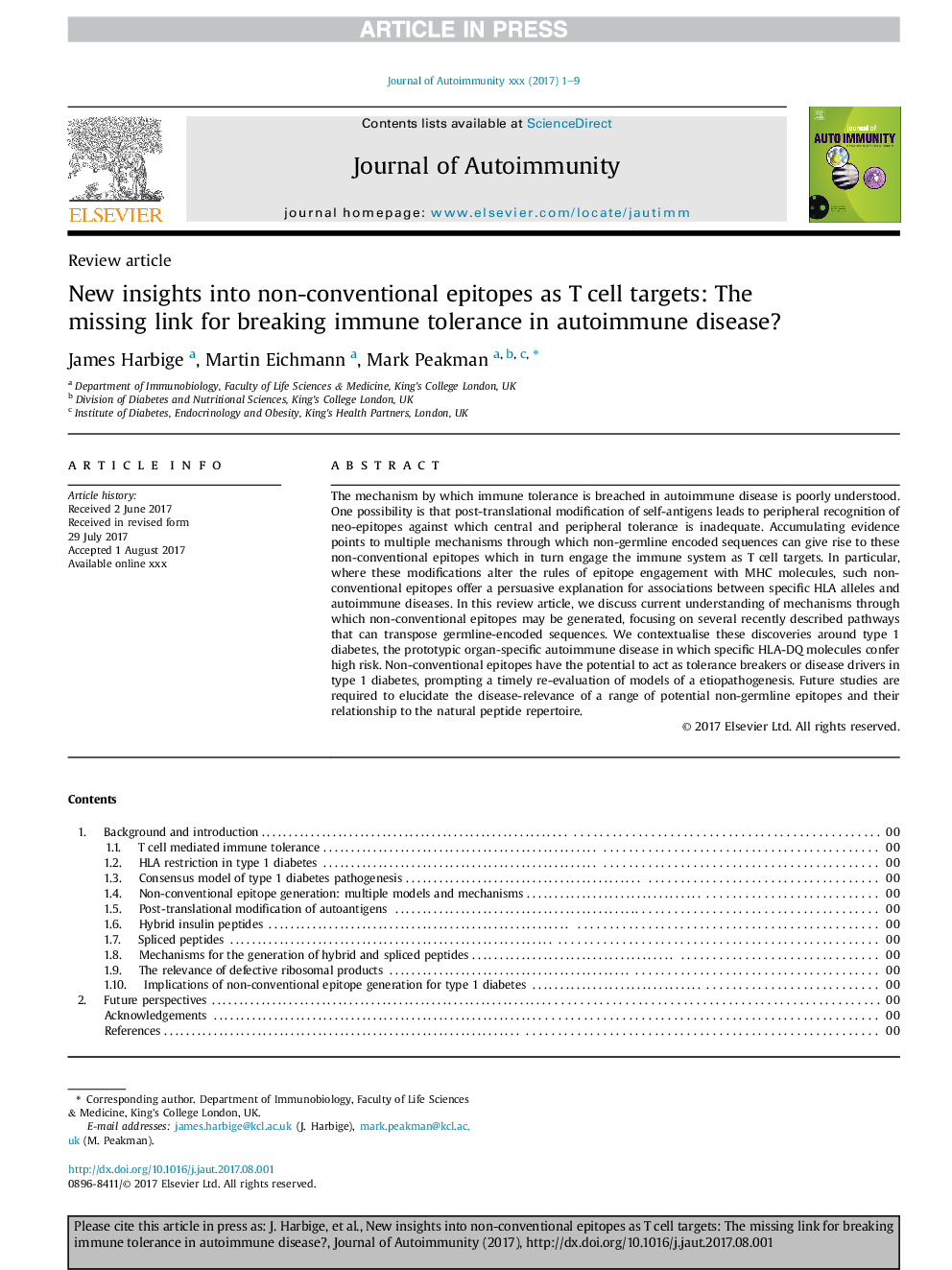| Article ID | Journal | Published Year | Pages | File Type |
|---|---|---|---|---|
| 8739620 | Journal of Autoimmunity | 2017 | 9 Pages |
Abstract
The mechanism by which immune tolerance is breached in autoimmune disease is poorly understood. One possibility is that post-translational modification of self-antigens leads to peripheral recognition of neo-epitopes against which central and peripheral tolerance is inadequate. Accumulating evidence points to multiple mechanisms through which non-germline encoded sequences can give rise to these non-conventional epitopes which in turn engage the immune system as T cell targets. In particular, where these modifications alter the rules of epitope engagement with MHC molecules, such non-conventional epitopes offer a persuasive explanation for associations between specific HLA alleles and autoimmune diseases. In this review article, we discuss current understanding of mechanisms through which non-conventional epitopes may be generated, focusing on several recently described pathways that can transpose germline-encoded sequences. We contextualise these discoveries around type 1 diabetes, the prototypic organ-specific autoimmune disease in which specific HLA-DQ molecules confer high risk. Non-conventional epitopes have the potential to act as tolerance breakers or disease drivers in type 1 diabetes, prompting a timely re-evaluation of models of a etiopathogenesis. Future studies are required to elucidate the disease-relevance of a range of potential non-germline epitopes and their relationship to the natural peptide repertoire.
Related Topics
Life Sciences
Immunology and Microbiology
Immunology
Authors
James Harbige, Martin Eichmann, Mark Peakman,
